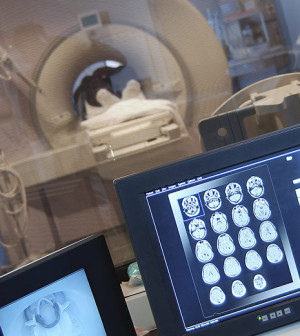- Could Your Grocery Store Meat Be Causing Recurring UTIs?
- Are You Making This Expensive Thermostat Error This Winter?
- Recognizing the Signs of Hypothyroidism
- 10 Strategies to Overcome Insomnia
- Could Artificial Sweeteners Be Aging the Brain Faster?
- Techniques for Soothing Your Nervous System
- Does the Water in Your House Smell Funny? Here’s Why
- Can a Daily Dose of Apple Cider Vinegar Actually Aid Weight Loss?
- 6 Health Beverages That Can Actually Spike Your Blood Sugar
- Treatment Options for Social Anxiety Disorder
Health Highlights: Feb. 2, 2016

Here are some of the latest health and medical news developments, compiled by the editors of HealthDay:
E.Coli Oubreaks at Chipotle Restaurants Appear to be Over: CDC
Two multi-state E. coli outbreaks linked to Chipotle Mexican Grill restaurants appear to be over, the U.S. Centers for Disease Control and Prevention says.
In one outbreak, 55 people in 11 states were reported ill and 21 were hospitalized. In the second outbreak, five people in three states were reported ill and one was hospitalized. The two outbreaks were caused by different E. coli strains.
The most recent illness linked to the outbreaks was reported to the CDC on Dec. 1, 2015.
Investigators concluded that a common meal item or ingredient served at Chipotle restaurants was a likely source of both outbreaks, but a specific food or ingredient was not pinpointed.
Most of the people who became ill ate many of the same food items at different Chipotle restaurants, the CDC said.
—–
Embryo Gene ‘Editing’ Approved by British Regulator
British scientists have received permission to use a controversial new method of gene editing on human embryos.
The team plans to use the technique to study the first week of an embryo’s growth to learn more about the genes that human embryos require for successful development, the Associated Press reported.
The approval was announced Monday by Britain’s fertility regulator, the Human Fertilization and Embryology Authority.
The research will be led by Kathy Niakan of the Francis Crick Institute, and will “enhance our understanding of (in vitro fertilization) success rates, by looking at the very earliest stage of human development,” according to institute director Paul Nurse, the AP reported.
However, some experts say gene editing in embryos raises major ethical concerns.
“This is the first step on a path that scientists have carefully mapped out towards the legalization of (genetically modified) babies,” David King, of Human Genetics Alert, said at the British fertility regulator’s recent meeting to consider the gene editing approval, the AP reported.
Some scientists believe that modifying genes in human embryos could lead to treatments for inherited conditions such as muscular dystrophy. But, there is wide variation between nations on rules and guidelines about this type of research, the news agency reported.
In the United States, the National Institutes of Health does not fund this kind of research, but private funding is permitted, the AP reported.
Copyright © 2026 HealthDay. All rights reserved.










